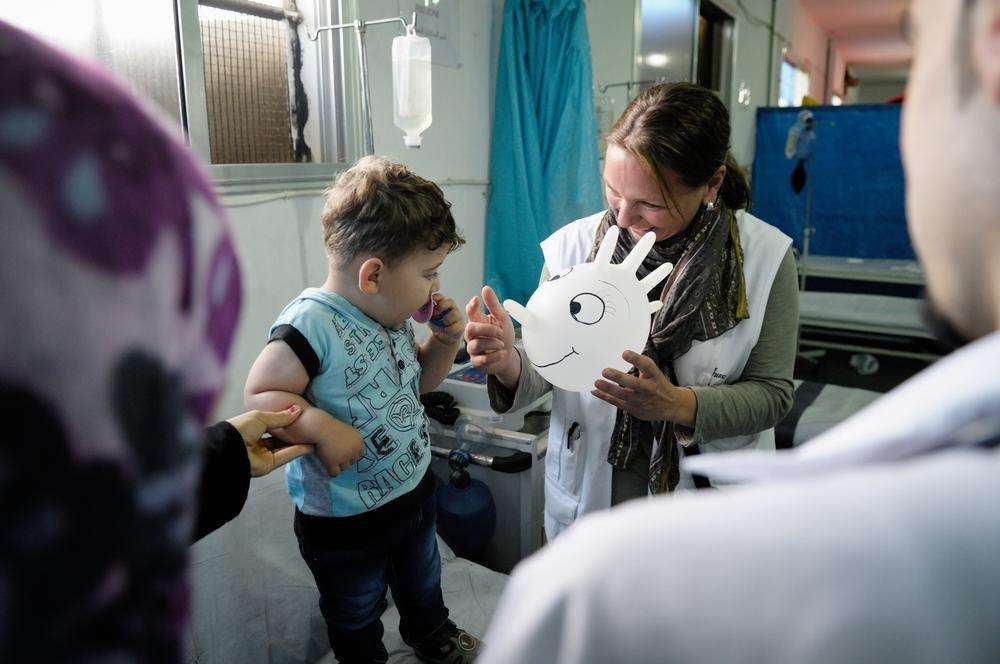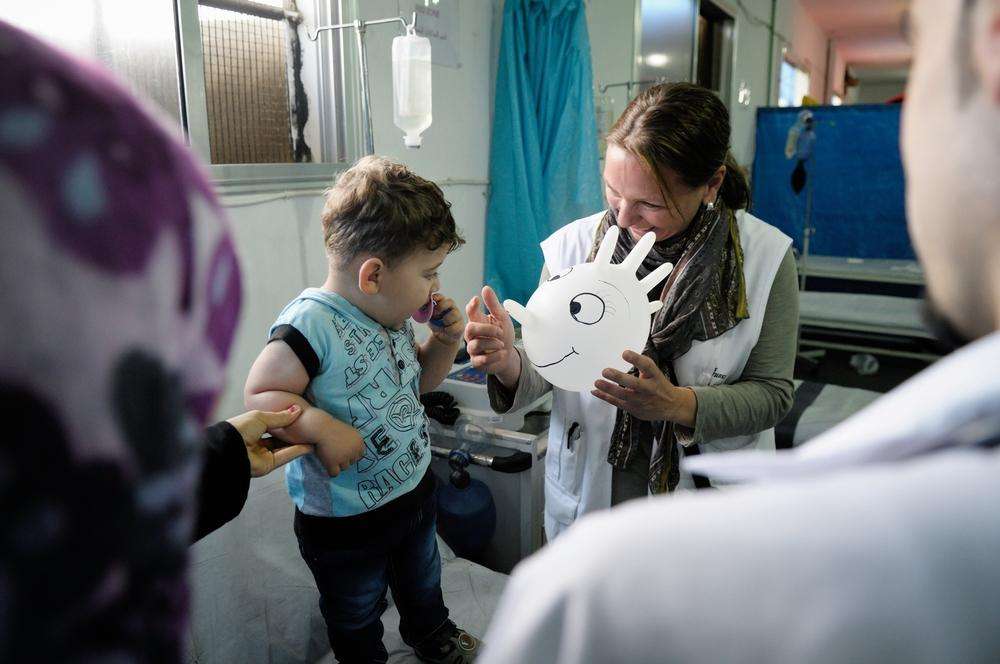Even veteran aid workers might think twice when asked to work in Syria, but Dan Dirks, an MSF logistician from Kansas, didn’t hesitate. Here he discusses the two months he spent this past summer setting up a makeshift MSF hospital near the Turkish border:
I know I’ll never have another mission like this in my life. We weren’t on the front lines of the fighting, but everyone was conscious of how close it really was. The shelling was like constant thunder in the background. Our village was down in a valley, mostly protected from the rockets that would arch over the hills and mountains. The national staff didn’t miss a beat—they were used to it. They’d been through two years of civil war. By the time I was done that thunder had faded into background noise for me, too.
Before I arrived the team had been conducting surgery out of a cave; they’d moved by the time I got there, and were just setting up a new hospital in an abandoned chicken barn. It was a long, narrow building, 100 feet long and 60 feet wide, about as long as a football field. We used blue plastic sheeting to divide the barn into rooms. We put a proper maternity ward in the back with blast walls to protect against shrapnel, so that women could stay and deliver babies even during an attack.
At first it was difficult getting building materials—everything had to be brought in, which was very time consuming. So, I told my national staff crew what we needed: roofing, nails, hammers, wood—gosh, everything. And they’d say, “No problem, we’ll get it.” And the next day they’d come back with everything I’d asked for. It got to the point where our head of mission was getting concerned because he didn’t know where the guys were going to get this stuff. It turned out that when my men went out to the small markets that were still open, people would bring things to them—people were taking their houses apart so we could use the materials in the hospital! They didn’t want money; they just wanted to help! When I found out this was happening I said, “Don’t take your house apart, we need houses here too!” And they’d say, “No, no, my family’s all been killed in the war. I can’t use my house; this is the only way I can help. Please use these things.” It makes you not want to waste anything.
All of the men I had working for me gave 110 percent. I had 30 national staff members who were all just absolutely brilliant. I worked myself out of a job. My last week I didn’t need to be there—everybody knew their role, they wanted to do their job, and they were doing it better than you ever could expect. Nobody wanted [to be paid for] overtime; they’d come early and stay late.
They weren’t there for the money. They were there to help. From my office in the middle of the hospital I saw babies coming in to the left and casualties going off to the right. We were bringing them in and taking them out, and we were doing it all in the same motion, in the same building, all with the same amount of compassion, and it was working. We had mothers crying in labor and mothers crying because their sons had been hurt in battle, and everybody was making it work.
I worked with the absolute best people that I’ve ever run across in the absolute worst situation you could ever imagine. They just keep working. And then they look at us and say, “Oh, you guys are the heroes. You left your own country and came all the way here to help us.” They’re just so thankful. They get you tea and a cigarette and they pull out a chair for you... they treat you like a king. And they’re the heroes. We’re just the cheerleaders. As different as we all are at MSF—and with all of the challenges those differences can pose in the field—when you’re pushed hard enough and you’re in a situation where you’ve all got to come together, that all goes away. The team moves just like one organism. It’s brilliant.





